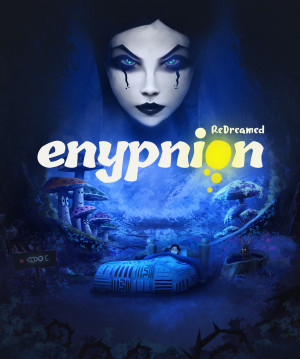Review for Loretta
Created by Yakov Butuzov and Daria Vodyanaya, DANGEN Entertainment’s Loretta uses a side-scrolling third-person point-and-click interface and well-crafted art and music to make the player an accomplice to the crimes of an abused housewife. Loretta, the titular protagonist, struggles for respect, acceptance, and agency in the often-brutal social culture of 1947: crimes involving extortion and murder. Though deftly exploring a frightening premise, the frustrating mini-games, an irksome autosave feature, and slight interface difficulties prevent this story from fulfilling its deeply rooted potential.
A simple interface tethers the player to the narrative. I played the colorized PC version; there's also a black-and-white mode. Pressing the letter A moves Loretta left; D moves her to the right. Placing the mouse over a flashing object and clicking on its label orders Loretta to pick it up. She needs to be very close to an item to accomplish this, which impeded progress because I never knew when I was close enough to manage it successfully. Handling the item is slightly easier -- she just needs to be in the proper place to use it. Viewing the available objects requires clicking on the purse icon at the upper-left corner of the screen, which reveals the inventory. Arrows then help you select the item of your choice.
Loretta employs colorful pixel art that exploits the brain’s tendency to search for patterns. This impulse, along with the characters’ often featureless faces, allows the player to view the characters with increased empathy, perhaps by endowing them with the player’s own features.
The darkly haunting music and eerie sound effects are appropriately suspenseful. One can more easily guess the mood that currently possesses Loretta based on the background music.
The interface, graphics, and music solidify to relate Loretta’s story. She’s a nineteen-forties woman whose unlucky marriage has chained her to Walter, an abusive, downtrodden writer of detective novels. When he unexpectedly disappears, Loretta is drawn into a nightmare; she needs the player’s guidance to survive. Helping her involves solving three different sorts of puzzles: dialogue choices that affect her relationship with characters, fetch quests when she acquires an item and brings it to the proper place to use it, and mini-games -- reaction-based arcade-style sequences.
Loretta determines how to deal with the characters around her through the player's dialog choices. The conversations do not feature voice-overs. If the player selects the aggressive dialog choice that is colored red, the result can be fatal.
Mini-games were the most aggravating part of playing Loretta. Two factors lessened my enjoyment: first, my not very nimble fingers, and secondly, the lack of instructions. For instance, on one occasion I clicked on words that represented alcoholic drinks, such as “Whiskey,” “Bourbon,” or “Scotch,” while an egg was apparently cracking. There weren't any directions, so I just clicked randomly on the words. After many discouraging attempts, I succeeded through sheer luck. In addition to this lack of guidance, the mini-games’ ultimate purpose was unclear.
I also didn’t care for the autosave feature because I could never tell when my progress was saved. I became frustrated when I returned and the game resumed in a place that was different from where I thought it would be.
Loretta valiantly tries to tell a compellingly scary story. Besides the annoying autosave feature, the mini-games often removed me from the narrative because I didn’t understand their purpose or relationship to the events as they unfolded. If the mini-games had been tied to the narrative, they would have left a deeper impact and imparted a much richer experience.





























